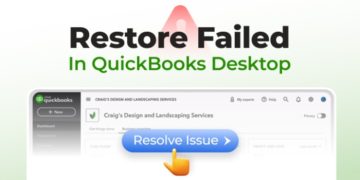It might be easy to set up a small business, but the difficulty lies in its preservation. One way to contribute to the business’s success is to reduce business expenses and save money.
Saving is easier in theory than in practice since it requires sacrifice and discipline. Use these simple cost-cutting ideas to save your business money.
Cut Costs On Your Water Bills
There are several ways for your company to save money on energy and water bills. Quick and easy changes can result in big savings and a better cash flow on your small business’s budget.
Switch Water Suppliers
Choose a new water supplier; changing water providers might help you locate a more affordable plan with reduced prices. It is projected that companies might save around 12 per cent on their water expenditures by switching suppliers. In addition, once you have discovered favourable rates, you may lock them in for up to three years.
Install Water-efficient Technology
Installing water-efficient technology is a cost-effective way for businesses to save water. Consider adding lever or mixer faucets that hold water by rapidly attaining the desired temperature. In addition to being simple to install, aerators that incorporate air into the water flow may minimise water use.
Conduct a Water Audit
A business water audit, conducted by a third party, assesses your water consumption and provides comprehensive information regarding water efficiency potential and cost savings. Additionally, it may detect any water leaks that need repairing.
If a water audit does not work for your company, you can still do your inspections. Place a few food colouring drops in the toilet tank to detect water leaks. If the colour appears in the bowl, your tank is squandering water invisibly.
Get Everyone Involved
You could put an employee in charge of a water conservation plan, keep people up-to-date on how much water is being used, and start talking to employees about water conservation programmes.
Communication is essential for saving money. Make your plan for water conservation transparent, felt, and implemented by all staff.
Use Independent Contractors
During the first years of operation, a business is often still determining its market niche. Typically, this entails testing many channels, consumer types, or markets to see which develops traction.
Employing freelance sales or business development professionals might be an excellent alternative during these shaping years. Often, they possess extensive industry or consumer expertise that contributes to saving money and business success.
Partner And Outsource
Keeping expenses low is a competitive edge for any business, particularly startups. Focus on the company’s main objective and outsource as many core processes as necessary.
When you focus on your main business and give support tasks to partners and contractors, you pay variable costs for services instead of a fixed cost for employees.
Cut Traditional Advertising Costs
Small businesses can save money by cutting a few costs by reducing conventional advertising and favouring inexpensive alternatives. Employee costs, including pay, office space, and maintenance costs, may consume most of a small company’s budget.
Marketing a small business is difficult, particularly with limited resources and knowledge. Even if you have unlimited funds, pouring money into sponsored advertisements does not ensure sales. Signing up for social media channels like Facebook, Twitter, Instagram, and Pinterest is free and may save your business thousands on marketing expenses.
Small business owners are changing their marketing strategies to take advantage of the digital world’s limitless opportunities for highly targeted marketing to attract the target market they want.
Shared or Co-working Office Spaces
If your small business is too small to occupy an office, sharing space with another company might reduce one of the most significant business expenditures – rent.
Suppose you do not need a dedicated office. In that case, co-working spaces are increasing rapidly and provide suitable working environments for smaller teams without the expense and inconvenience of long, costly leases.
Sharing with others provides more advantages than only a means to save money. You will quickly find yourself networking with many other business owners and people in business, leading to prospects for collaborations and learning.
Work Remotely
Many businesses now use an entirely remote staff. Even if you are not yet prepared to quit your lease, there are several cost-saving advantages to allowing your employees to work from home.
Less personnel in the workplace necessitates fewer resources and square footage. This may also result in lower expenses for office supplies, furniture, and equipment daily.
Buy Second-hand
If remote working is not an option, visit your local office supply store and buy second-hand furniture and office equipment. This can reduce expenses resulting in significant savings.
Conclusion
A business owner knows that running your own business can be expensive. The money-saving tips listed above are practical and actionable and, most importantly, can reduce costs.
David Prior
David Prior is the editor of Today News, responsible for the overall editorial strategy. He is an NCTJ-qualified journalist with over 20 years’ experience, and is also editor of the award-winning hyperlocal news title Altrincham Today. His LinkedIn profile is here.












































































